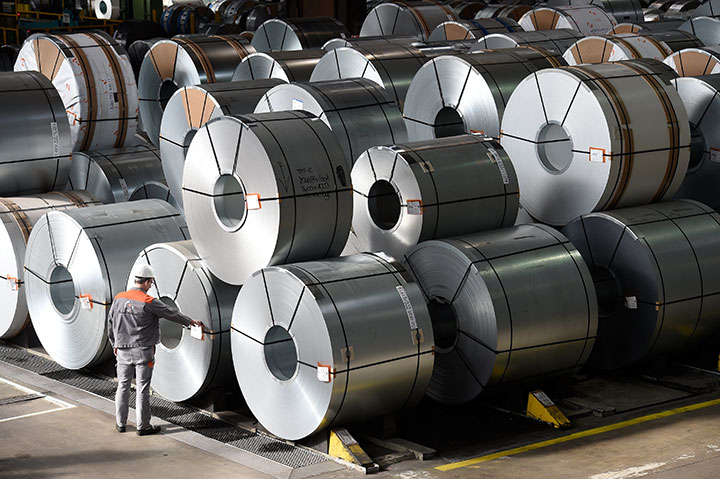OTTAWA – The United States says it’s firing back at the Canadian government’s recent retaliatory tariffs on American imports by launching a formal challenge with the World Trade Organization.

The federal Liberal government introduced reciprocal duties earlier this month on some U.S. imports after the Trump administration slapped Canada – and other American allies – with tariffs on steel and aluminum.
READ MORE: Canadians still flocking to the U.S. in spite of trade war
Foreign Affairs Minister Chrystia Freeland has called Washington’s metal tariffs absurd and illegal because they’ve been applied on the premise that Canada represents a national security threat to the U.S. Ottawa’s response has been $16.6-billion worth of countermeasures on imports of American steel, aluminum and consumer products.
The U.S. took a fresh step Monday in the trade fight by filing separate disputes at the WTO against Canada – as well as the European Union, China, Mexico and Turkey – over each jurisdiction’s set of counter-tariffs on imports of American goods.

“The actions taken by the president are wholly legitimate and fully justified as a matter of U.S. law and international trade rules,” U.S. Trade Representative Robert Lighthizer said in a statement.
“Instead of working with us to address a common problem, some of our trading partners have elected to respond with retaliatory tariffs designed to punish American workers, farmers and companies.”

Get weekly money news
Lighthizer added Monday that the countermeasures recently applied against the U.S. appear to breach WTO commitments.
READ MORE: These animated maps show Canada has so much more to lose in a trade war than the U.S.
“The United States will take all necessary actions to protect our interests, and we urge our trading partners to work constructively with us on the problems created by massive and persistent excess capacity in the steel and aluminum sectors,” he said.
Last month, U.S. Commerce Secretary Wilbur Ross said the U.S. tariffs against Canada and other allies were designed to force them into action to address the world’s overproduction and overcapacity of steel.

Freeland has insisted that Canada introduced stronger safeguards on steel well before the U.S. imposed the tariffs.
On this front, Ottawa feels it has more work to do. The federal government has said it’s consulting with industry so even more can be done to address the diversion and dumping of aluminum and steel in the Canadian market.
READ MORE: Boycotting U.S. products? Here’s how to buy Canadian during a trade war
The unprecedented, cross-border tensions have presented big challenges for the Canada-U.S. trading relationship. The hurdles include the stalled renegotiation of the North American Free Trade Agreement and President Donald Trump’s threats that he will impose new tariffs – this time on the automotive sector.
There are widespread warnings that levies on the highly integrated Canada-U.S. auto sector would be far more damaging for the economy than the duties on steel and aluminum.

The Trump administration is still considering the auto tariffs and, later this week, the U.S. Department of Commerce will hold hearings on whether it can impose them over national security concerns, much like it did for steel and aluminum.
David MacNaughton, Canada’s ambassador to the U.S., is scheduled to testify Thursday at the hearings in Washington.







Comments
Want to discuss? Please read our Commenting Policy first.